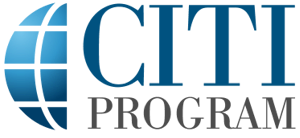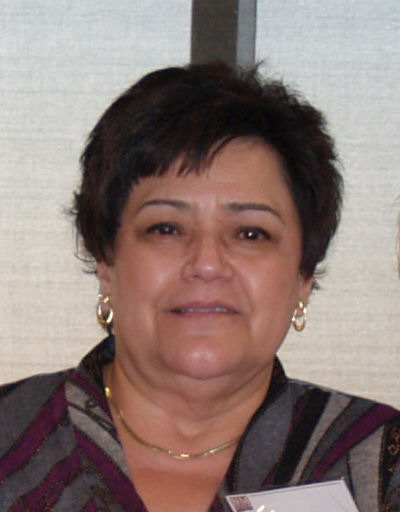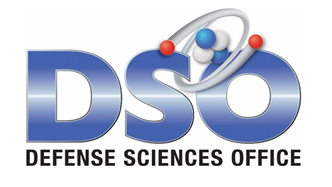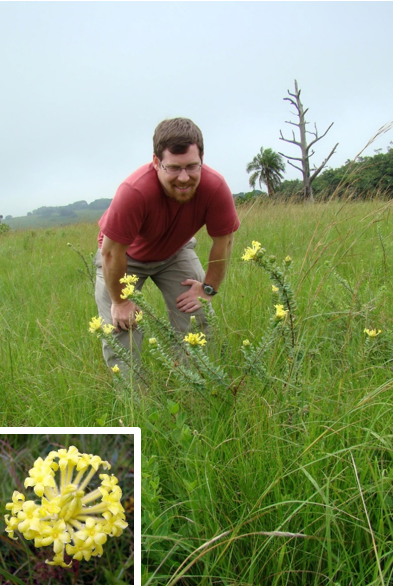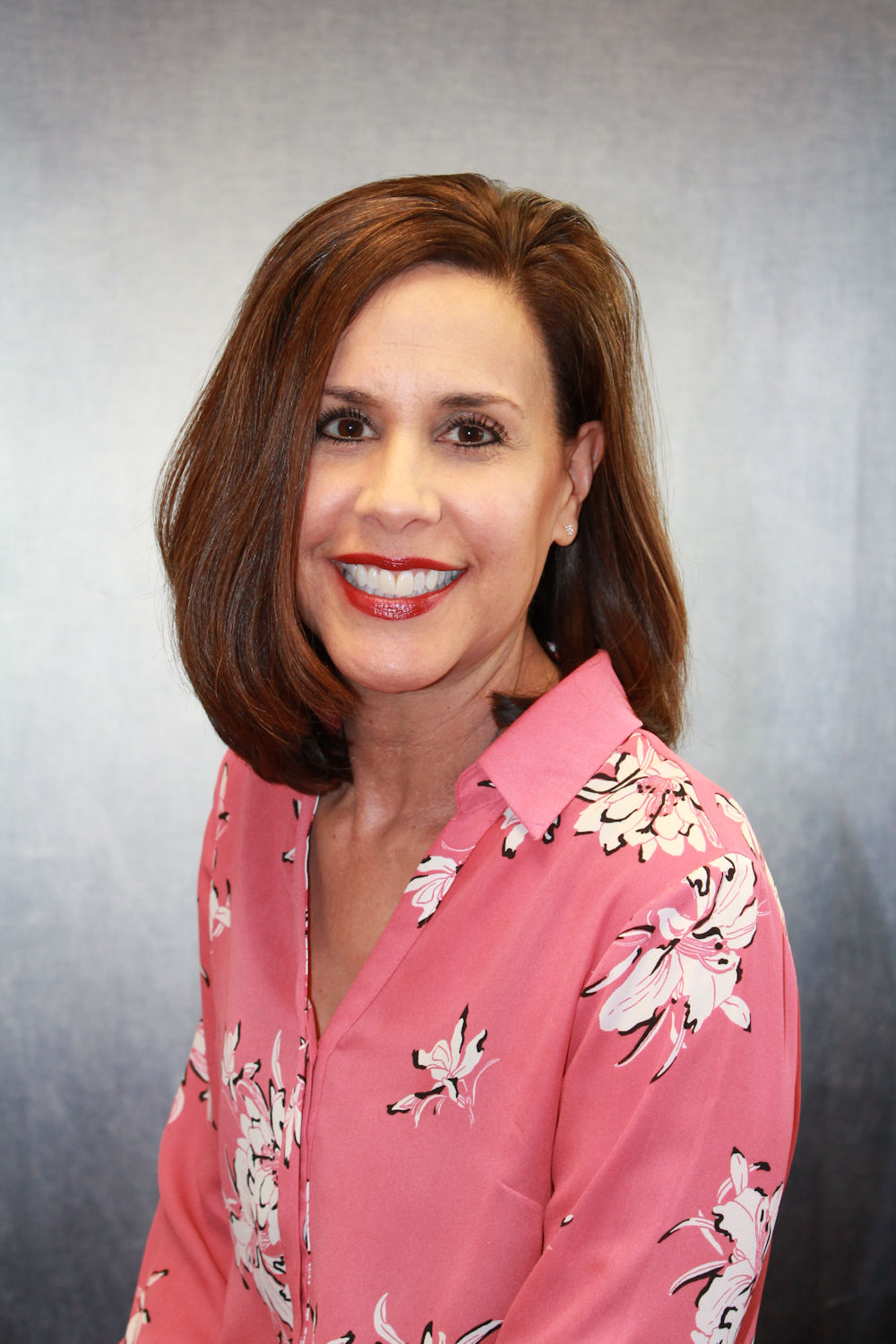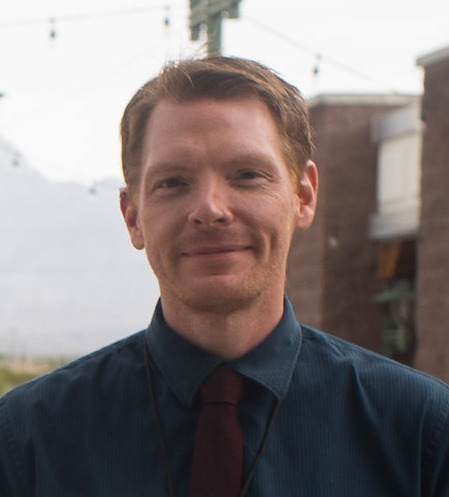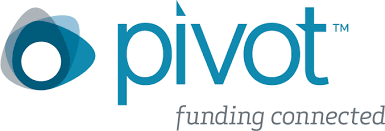 |
|
The New Mexico State University R1 "Myth"By Luis Cifuentes, Vice President for Research and Dean of Graduate School
The Vision for New Mexico State University (NMSU) is that “[b]y 2025, the NMSU system will excel in student success and social mobility for our diverse student populations, achieve the highest Carnegie research status (R1), and maintain our Carnegie Community Engagement classification.” Recent posts on Faculty Talk have pronounced the LEADS 2025 R1 ambition a myth. Such declarations vex me professionally and personally. Professionally, I stake my reputation as vice president for research (VPR) on my firm conviction that we can achieve R1 status, and I state so definitively to prospective faculty whom I interview. Personally, I was a strong advocate for the positive impact R1 status can have on student success and social mobility during our strategic planning effort. I am deeply passionate about NMSU achieving R1 status. Admittedly, I get a rush from meeting the challenge of increasing research expenditures and doctoral student graduates, but it is much more than that. It is also about social justice in academic research. For example, Dr. Willie May, vice president for research and economic development at Morgan State University and member of the Safe and Inclusive Task Force of the Association of Public and Land Grant Universities Council on Research Leadership, acknowledges that he was able to attend college because of increased funding for STEM education that was driven by the launch of Sputnik in 1957. Although he benefited as a minority student, HBCUs and MSIs were not, then nor now, recipients of the game-changing funding that benefited many of R1 Universities. Of the 130 R1s, none are HBCUs and less than a handful are MSIs. This is not surprising. Anthony P. Carnevale, author of the Merit Myth, wrote in a Washington Post op-ed in response to the admissions scandal that broke in March 2019 “[t]he system is worse than broken. It’s fixed.” I posit that “the system” is not just fixed at admissions in elite schools (public and private), it is also in question with respect to external funding of HBCUs or MSIs, a requisite for achieving R1 status. In addition, the playing field is not even when it comes to state funding for graduate programs and access to foundation moneys and philanthropy. With that said, while the goal of becoming R1 may be extraordinarily difficult for HBCUs and MSIs to attain, the goal is not the “myth.” Instead, the many structural barriers that keep HBCUs and MSIs from doing so have as their foundation the Merit Myth. Responding to 6 Quotes From ‘The Merit Myth’, Joshua Kim reminds us that it “would be wise to remember Upton Sinclair's warning that ‘it is difficult to get a man to understand something when his salary depends on his not understanding it.’" To paraphrase, apropos of this message I would say, “it is difficult to get elite universities to understand something when their ranking depends on their not understanding it.” Carnevale demands that elite public and private institutions (mostly R1s) discard the status quo which favors the wealthy. Kim rightly notes that, in response, elite universities will ask “[w]hat would the impact on the production of scholarship be if elite institutions redirected funding away from a scholar-teacher model and toward recruitment and scholarships for low-income students?” I suggest that, instead, elite universities ask a parallel question: what would the impact on the production of scholarship be if a significantly greater proportion of federal funding was redirected to HBCUs and MSIs who serve a greater percentage of low-income students so more HBCUs and MSIs can move to the scholar-teacher model? An honest answer would be that the impact of an HBCU or MSI attaining R1 status will be orders of magnitude greater than a non- HBCU or MSI R2 becoming R1. On some days, I feel like Sisyphus, pushing a large rock up a mountain, only to see it roll down again. I am disturbed by the gulf between social justice mandating that more HBCUs and MSIs become R1, and the slow progress towards equity in academic research. But on others, I am convinced that collectively, the strength of our faculty will push the R1 boulder to the top of the mountain and that the absurdity of our quest will be disproved. Thanks to all of you who believe in and work so hard to achieve our LEADS 2025 vision.
|
Dr. Cifuentes, Vice President for
|
CITI Human Subjects Research Webinars Now AvailableBy Michelle Gavin, Research Integrity Coordinator, RIC
The Office of Research Integrity and Compliance (RIC) along with the NMSU Institutional Review Board (IRB) are excited to be adding 27 webinars as well as future webinars to our CITI site offering for the next 6 months. These webinars are free to view on demand for all NMSU students, faculty, staff, and affiliates. Please let us know if you find these webinars beneficial. Your input will help us determine if we should renew this all webinar access to our annual CITI subscription. To access these webinars:
Here is the list of current webinars available to all NMSU affiliated CITI users:
If you have any questions or need assistance, please contact the Office of Research Integrity and Compliance at 575-646-7177 or email ovpr@nmsu.edu. |
|
Congratulations to Joanne Esparza and NMSU PSL's ISSS TeamBy Hamid Mansouri Rad, Senior Proposal Development Specialist, RAS
Congratulations to Ms. Joanne Esparza, and the entire Information Sciences and Security Systems (ISSS) team at NMSU’s Physical Science Laboratory (PSL) for securing a $92,870,000 contract from the US DoD to support PSL customer’s Information Operations, Vulnerability/Survivability Assessment and Analysis program and missions. “This significant award provides a foundation for NMSU’s LEADS 2025 goal of achieving R1 status while ensuring PSL’s continued success,” states NMSU Vice President for Research and Dean of Graduate School Luis Cifuentes. PSL was founded in 1946 in response to the nation’s space and rocket programs needs and its domain expertise includes ISSS, Modern Electronic Battlefield, Telemetry and Missile Systems, and 21st Century Aerospace. PSL’s operations are led by retired Army Brigadier General Eric Sanchez and its personnel are primarily applied research and development subject matter experts, applied hardware and software experts and include engineers, software developers, scientists, and technicians. Ms. Esparza joined PSL in 1987 and is the Division Manager of PSL’s ISSS division. She also provides technical and fiscal management on several contracts funded by the DoD and is a member of International Test and Evaluation Association and Institute for Electrical and Electronic Engineers. For more information about PSL visit https://psl.nmsu.edu. |
Joanne Esparza, Director of
|
Associate Professor of Mechanical Engineering to Acquire a Specialized Metal Additive Manufacturing 3D Printer for NMSUBy Hamid Mansouri Rad, Senior Proposal Development Specialist, RAS
Associate Professor of Mechanical Engineering Krishna Kota was granted a Department of Defense award to acquire a Metal 3D printer for the College of Engineering. We thought this would be a great opportunity to introduce Dr. Kota to those new to NMSU and ask him to discuss his vision for this new equipment:
Congratuations, Dr. Kota on your recent NSF award. When did you join NMSU? Directed Energy Weapons (DEW) such as laser weapons are target-accurate and consume less power than traditional weapons. However, their electrical-to-optical conversion efficiencies are very low, leading to heat generation, which is a significant impediment to their successful implementation by the Air Force. A typical DEW system's heat density could be on the same order of magnitude as that of a nuclear explosion and poses significant cooling challenges. How do you envision this equipment will enhance NMSU’s research capabilities? How does this equipment enhance our capability to persue other funding opportunities? The machine will be useful for creating exciting new fundamental and applied research and education opportunities in the advanced manufacturing of metals at NMSU. For example, my team on this project includes Dr. Vimal Chaitanya and Dr. Igor Sevostianov from Mechanical and Aerospace Engineering, Dr. Delia Valles-Rosales from Industrial Engineering, and Dr. Ehsan Dehghan-Niri from Civil Engineering. They will help pursue research on various aspects of additively manufactured metal parts such as the corrosion and the electrochemical behavior, material microstructural defects, micro-mechanics and material properties, and reliability and quality control. Who will manage the activities of this printer? Dr. Kota can be reached at kkota@nmsu.edu. |
Dr. Krishna Kota, Department of Mechanical Engineering, NMSU |
DARPA Young Faculty Award Funding OpportunityBy Hamid Mansouri Rad, Senior Proposal Development Specialist, RAS
The Defense Advanced Research Projects Agency (DARPA) Defense Sciences Office (DSO) has issued its Young Faculty Award funding opportunity (DARPA-RA-21), with the goal of exposing distinguished researchers in early career faculty or equivalent positions at academic and non-profit research institutions to the DOD mission, challenges, and needs. DARPA accepts innovative research proposals in the areas of interest to its six technical offices: Biological Technologies Office (BTO), Defense Sciences Office (DSO), Information Innovation Office (I2O), Microsystems Technology Office (MTO), Strategic Technology Office (STO), and Tactical Technology Office (TTO). To access the full solicitation and required templates on Grants.gov click here. |
|
Congratulations to NMSU's Zachary Rogers for being Published in "Nature"By Hamid Mansouri Rad, Sr. Proposal Development Specialist, RAS
Zachary Rogers, Herbarium Curator in the Department of Animal and Range Sciences, participated in a research project on the plant biodiversity of New Guinea, the results of which were recently published in the journal Nature. The collaborative project, that for the first time catalogued the entire vascular plant flora of New Guinea, was a 2-year project carried out by an international group of biologists. Zachary Rogers was the only participant from New Mexico and one of a few from the United States. To read the article titled "New Guinea has the World’s Richest Island Flora," click here. For more information, please contact Zachary Rogers a zrogers@nmsu.edu.
|
|
Research Administration Spotlight: Director Rita ParraBy Hamid Mansouri Rad, Sr. Proposal Development Specialist, RAS
For most NMSU faculty and researchers, Ms. Rita Parra, the Director of Pre-Award Administration needs no introductions. But for those who have recently joined NMSU, it would be a good opportunity to learn that Ms. Parra oversees the administrative activities associated with externally funded grants and contracts for the NMSU system. She also assists in the development of research administration procedures, provides principal investigator (PI) training and is the Grants and Contracts Administrator for the College of Agricultural, Consumer and Environmental Sciences. “My advice to NMSU faculty and researcher is to start their proposal preparations early,” she states. “This will allow for a thorough review and submission of your proposal before the due date. Also, please contact RAS with any questions you may have, we are a service-oriented office and we’re here to provide optimal customer service to PIs and their colleges,” she adds.
|
|
Webinar on Proposal WritingBy Cindy Ramirez, Proposal Development Specialist, RAS
Senior Proposal Development Specialist Hamid Mansouri Rad, Ph.D. will offer a webinar on proposal writing on October 21 from 10:30 am to 11:45am in which he will discuss strategies to develop more effective proposals. "I’ve been involved in proposal development for over 15 years and have noticed how proposals often fail not due to questions regarding their scientific merits, but because of other issues that are easy to address," he states. If you are new to proposal writing, please join us. We would like to thank Dr. Morgan Iommi at NMSU's Teaching Academy for organizing this webinar. To register, please click here.
|
Hamid Mansouri Rad, Ph.D.,
|
Webinar on SBIR Phase IIBy Del Mackey, Technology Transfer and Industry Engagement Manager, Arrowhead Center
Are you a current SBIR/STTR awardee who is interested in learning more about the Phase II process? Do you want to learn about unique opportunities like Direct to Phase II and the requirements of those modified solicitations? Are you looking for additional funding to move your Phase II “product” to the commercial market? Join Arrowhead Center’s NM FAST program, and the ASCEND Hub, on November 19th as we explore these topics. This webinar will cover important aspects of a Phase II proposal package, key information you need to know about transitioning from a Phase I to Phase II award, and beyond Phase II funding mechanisms. There will also be a question and answer session with SBIR/STTR support personnel To register click here.
|
|
Pivot Funding Opportunity Database
This is a reminder that in order to assist NMSU faculty and staff in locating external funding opportunities, the Office of the Vice President for Research and Dean of Graduate School has purchased a subscription to ProQuest’s Pivot software available at https://pivot.proquest.com/session/login.
To request a one-on-one or group Pivot training, send email to hamid@nmsu.edu. |
|
Limited Submission Funding Opportunities
The Office of Research Administration Services lists limited submission funding opportunities at https://limitedsubmission.nmsu.edu. We encourage NMSU faculty and staff to periodically visit the site and if they are interested in any of the opportunities to please inform us by sending email to ls-ras@nmsu.edu. As a reminder, the site is only accessible on campus. Accessing the site using off-campus computers require first downloading and logging in through NMSU's VPN at https://vpn.nmsu.edu. |
|
Graduate School |
|
Holiday during the PandemicBy Luis A. Vazquez, Regents Professor and Associate Vice President for Research and Graduate Studies
The pandemic is having quite an impact on all of us. For some, it has had a very powerful psychological effect; for others, the lack of being able to normally socialize made us reflect on our needs to be with others; and yet to many of us, it became a time of taking an in-depth journey into our spirituality. All of us have made sacrifices in many different ways; not being able to attend events with our love ones, having to say goodbye to loved ones from afar, and restricting/restructuring our lives to meet our new reality. We have been at this since March, struggled through the summer and continued our journey into the Fall. We even survived July 4 and Labor Day. We have experienced every emotion possible since March; shock, anger, sadness, frustration, anxiety, fear, helplessness, hope, empathy, sympathy, surprise, happiness, enjoyment, excitement, love. Not sure what Halloween will be like this year, since we have been wearing masks already, but it is evident that many will celebrate following safety pandemic rules. The pandemic has also forced a re-evaluation of all policies/practices in our academic world:
This has caused many to be innovative and creative in meeting our short and long term needs at NMSU. However, this does not come without excessive brain activity, especially in our dreams. If you have been dreaming more often and better yet remembering your dreams, this is very normal during the pandemic. It’s a way of communicating with yourself during a dream state and leaving you to wonder, what issues are so powerful that they sneak into your sleep. Pay attention, many messages are sent through our dreams more than we often wish to acknowledge. Many times, the dreams can help us resolve issues that we do not want to solve in our awake state. The pandemic has also completely changed how we communicate and experience our interpersonal relationships. After talking to several colleagues across the campus, I have found that the same two individuals completely interpret the exact same email differently and with different emotions. I found this to be a fascinating phenomenon. I also realized that if capital letters are used, some individuals interpret this as being yelled at in the email. Emojis can even play a big part in the interpretation of the email. TEAMS has also become a fascinating experience. It’s like facetime on a bigger monitor. Using the gallery that puts all the participants on TEAMS in theatre seats in one group is also a hilarious experience. You get to see everyone at once, even when they raise their hands. ZOOM has a “Brady Bunch” effect as we see each other in squares and look up and down into our cameras. The great part is that if you are the host, you can mute or turn off someone’s camera or let them into the meeting. It is quite the experience to be on either end of being a host or a participant. We share all of this with you and ask what will be truly important to you during this upcoming holiday after Halloween. Some of us will stay here with some loved ones, others will return home and readjust to our families and their rules, and yet for others it will be just another day. Many businesses that are generally open have selected to be closed not expecting a lot of activity, or maybe to have their employees be at home with loved ones. It’s hard to say which it is this year. Regardless, the pandemic will be here with us. We encourage you to spend time with others that have your best interest in mind and of course you have their best interest in mind. Follow all the safety procedures, distancing, wearing masks, avoid large crowds and having a collective sense of responsibility and accountability for each other. Lastly, we ask that you take an “Awe Walk.” Looking for small wonders in the world around you. When you take an ordinary walk, slow down enjoy the environment, atmosphere, trees, mountains, flowers, and small animals. Try to enjoy and see things without judgement. Psychology tells us that “Awe Walks” contribute to lowering our emotional stress. Take some pictures, selfies on your walks and share them with others. Above all, take care of yourself and be safe, have a great holiday.
|
|
Need Assistance with Securing External Grants? Contact Us!By Hamid Mansouri Rad, Proposal Development Specialist, RAS
NMSU's Research Administration Services (RAS) is there to assist NMSU graduate students in competing for external grants and fellowships. We strive to improve the chances of our graduate students receiving awards. To seek assistance, we urge NMSU graduate students to send email to Proposal Development Specialist Ms. Chong-Hwey Fee at fee@nmsu.edu providing the following information:
|
Chong-Hwey Fee, Proposal
|
|
Questions and comments regarding NMSU’s Research and Graduate School Digest should be directed to Hamid Mansouri Rad, Ph.D. at hamid@nmsu.edu, (575) 646-6429. |
|

